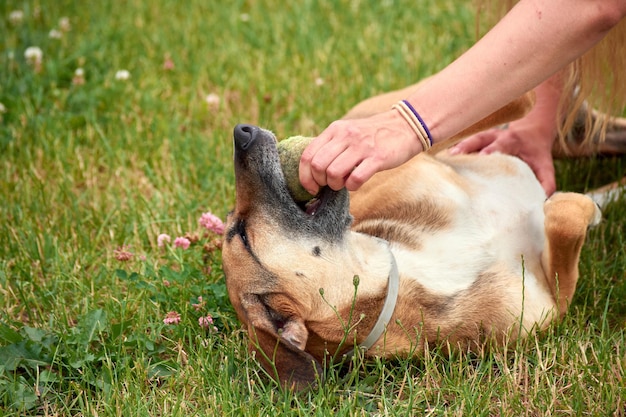Itchy Pets: How to Stop the Scratching


Itchy Pets: How to Stop the Scratching
If your dog or cat seems to be scratching nonstop, you are not alone—itchy skin is one of the most common reasons pet owners in Thomson and surrounding communities seek veterinary care. Whether your pet is licking, chewing, or scratching, constant itchiness can be frustrating for both you and your furry family member. At Reese Veterinary Hospital, our team understands how worrying it can be to watch your pet struggle with discomfort. That is why we are here to help you get to the root of the problem, find relief, and restore your pet’s quality of life.
In this guide, you will learn about the most common pet itching causes, what signs to watch for, and when to schedule an appointment with our veterinarians at 658 Main Street, Thomson, GA 30824. We will also discuss practical at-home tips, professional treatment options, and how our comprehensive pet care services—including wellness exams and flea and tick prevention—can make a difference. If you are searching for a "vet near me" who can help with pet itching in Thomson, you are in the right place.
Recognizing the Signs: Is Your Pet’s Itching a Problem?
Occasional scratching is normal for dogs and cats, but persistent itching can signal an underlying health issue. Many pet owners notice their dog scratching a lot during certain times of year, after going outside, or even at night. Other pets might lick or bite at their skin, rub against furniture, or develop patches of missing fur. Key symptoms include constant scratching, licking, chewing, redness, bumps, or scabs on the skin. You may also notice a musty or unpleasant odor, especially if a secondary infection has developed. Additionally, some pets will seem restless or irritable, and you might find hair loss or bald spots, particularly in areas your pet can easily reach.
It is important to differentiate between mild, occasional itching and more persistent or severe cases. For example, if your dog scratches sporadically after a walk but settles quickly, it may simply be a minor irritant. However, if your cat wakes you up at night with constant licking or biting, or if you see bleeding or thickened skin, it is time to seek help. Consistent scratching that disrupts your pet’s daily routine, causes skin damage, or seems to be getting worse should never be ignored. These signs often point to underlying pet itching causes that require veterinary attention.
Understanding Pet Itching Causes: Why Do Pets Scratch?
Pet itching can have a wide range of causes, and identifying the source is essential for effective treatment. In the Thomson area, environmental factors like pollen, grass, and local insects play a significant role—especially during spring and summer when outdoor allergens are at their peak. Among the most frequent pet itching causes are external parasites, such as fleas and ticks, which can trigger intense allergic reactions even from a single bite. If your pet spends time in grassy or wooded areas, flea and tick exposure is a common risk.
Allergies are another leading culprit. These can be related to environmental substances (like pollen or dust), food ingredients, or even substances your pet comes into contact with indoors. Symptoms of allergies often include itching, redness, and recurrent ear or skin infections. In some cases, pets may develop allergies over time, so a dog that never scratched much before can suddenly become a "dog scratching a lot" during allergy season.
Skin infections—either bacterial or fungal—frequently develop when a pet scratches or chews their skin excessively, breaking down the protective barrier. This opens the door to secondary problems that can prolong or worsen the discomfort. Additionally, certain medical conditions, such as hormonal imbalances or immune-mediated diseases, can cause generalized itching. Some pets, particularly seniors, may also experience dry skin or age-related changes that contribute to itchiness.
Less commonly, reactions to medications, shampoos, or even pet food recalls can trigger skin problems. Staying informed about current pet food recalls is one way to help rule out dietary causes if your pet’s symptoms appear suddenly after a change in food.
Professional Diagnosis and Treatment: What to Expect from Your Veterinarian
When you bring your itchy pet to Reese Veterinary Hospital for help, our veterinarians begin with a thorough history and physical examination. Understanding your pet’s environment, recent activities, diet, and previous health issues is key to narrowing down the most likely pet itching causes in Thomson. During your visit, our team will carefully inspect your pet’s skin, ears, and coat for signs of parasites, infections, or other abnormalities.
Diagnostic testing is often required to pinpoint the exact cause. This may involve skin scrapings, cytology (cell examination under a microscope), or laboratory tests to check for underlying infections or allergies. Our in-house pet diagnostic laboratory services in Thomson allow us to quickly identify the root of the problem and tailor a treatment plan to your pet's specific needs. In some cases, allergy testing or food trials may be recommended, especially if environmental or dietary allergies are suspected.
Treatment options depend on the diagnosis. For parasite-related itchiness, effective flea and tick prevention is essential for both immediate relief and long-term control. Allergies may require a combination of strategies, such as hypoallergenic diets, medicated shampoos, or prescription medications to control inflammation and itch. If a skin infection is present, antibiotics or antifungal medications may be prescribed; these are available through our veterinary pharmacy services for added convenience. In more severe or chronic cases, ongoing management and regular follow-up visits help keep your pet comfortable and healthy.
At Reese Veterinary Hospital, we believe in a collaborative approach. Our veterinary professionals take time to explain the diagnosis, answer your questions, and outline all available options so you can make the best decision for your pet. We also offer specialized senior pet care services to address age-related skin issues, which are common in older dogs and cats.
Home Care and Prevention: Steps You Can Take
While professional veterinary care is crucial for diagnosing and treating severe itching, there are several practical steps you can take at home to help your pet feel more comfortable. Regular grooming is one of the simplest ways to reduce external irritants, remove loose fur, and spot early signs of trouble. For dogs and cats prone to seasonal allergies, wiping down paws and coats after outdoor walks can minimize exposure to pollen and grass.
Routine use of veterinarian-recommended flea and tick preventives helps protect your pet from parasites and the allergic reactions they cause. Bathing your pet with gentle, hypoallergenic shampoos can provide relief for mild itching, but avoid over-bathing, which can dry out the skin. When introducing new foods, treats, or cleaning products, monitor your pet closely for signs of itching or sensitivity.
Providing a balanced diet and plenty of fresh water supports skin health from the inside out. Omega-3 fatty acids, found in fish oil supplements, may also improve coat condition and reduce inflammation, though it is best to discuss these supplements with your veterinarian first. Maintaining a clean, allergen-reduced environment by vacuuming and washing pet bedding regularly helps control dust mites and other potential irritants.
Remember, while these home care tips can provide comfort, they are not a substitute for professional diagnosis and treatment, especially if your pet’s symptoms are persistent or severe.
When to Seek Veterinary Care: Knowing When It’s Time for Help
It is natural to wonder whether your pet’s itching is just a minor annoyance or a sign of something more serious. You should contact your veterinarian promptly if your pet's scratching leads to bleeding, open sores, or infection; if you notice hair loss, thickened skin, or a sudden change in behavior; or if your dog is scratching a lot and cannot seem to get relief. Persistent ear shaking, head tilting, or discharge from the ears can also indicate an underlying problem that needs attention.
If you have tried basic home care without improvement, or if your pet’s condition worsens, it is time to schedule an appointment for a comprehensive evaluation. Early intervention not only provides faster relief but can also prevent complications like chronic skin infections or scarring. For pets with ongoing allergies or recurrent issues, partnering with a trusted veterinary team ensures long-term management and comfort.
Our veterinarians at Reese Veterinary Hospital are here to help with pet itching causes in Thomson and surrounding communities. We provide compassionate support and customized care for every stage of your pet’s life, from puppies and kittens to seniors. If you are searching for "quality veterinary services near me" because your pet just cannot stop scratching, we encourage you to reach out for expert guidance.
Take the Next Step: Schedule Relief for Your Itchy Pet
Every pet deserves to live free from the discomfort of constant itching. At Reese Veterinary Hospital, our team of veterinarians is dedicated to finding solutions tailored to your pet’s unique needs. Whether the cause is allergies, parasites, infection, or something else, we have the tools and expertise to help. If your pet is showing signs of persistent scratching, licking, or skin problems, do not wait—early intervention makes all the difference.
Call (762) 800-1898 or visit our online appointment portal to schedule a visit at our conveniently located 658 Main Street, Thomson, GA 30824. Our veterinary professionals will perform a thorough evaluation, recommend the right diagnostic laboratory services in Thomson, and guide you through the best treatment options for your pet’s comfort.
We are proud to serve families looking for a caring "vet near me" in Thomson and surrounding communities. If you have questions or concerns about pet itching causes or are worried about a dog scratching a lot, we are here to help. Schedule an appointment today and let us partner with you for your pet’s healthiest, happiest life.
This blog is intended for informational purposes only and should not be used as a substitute for professional veterinary care. If your pet shows severe symptoms or is in distress, contact your veterinarian promptly.



















